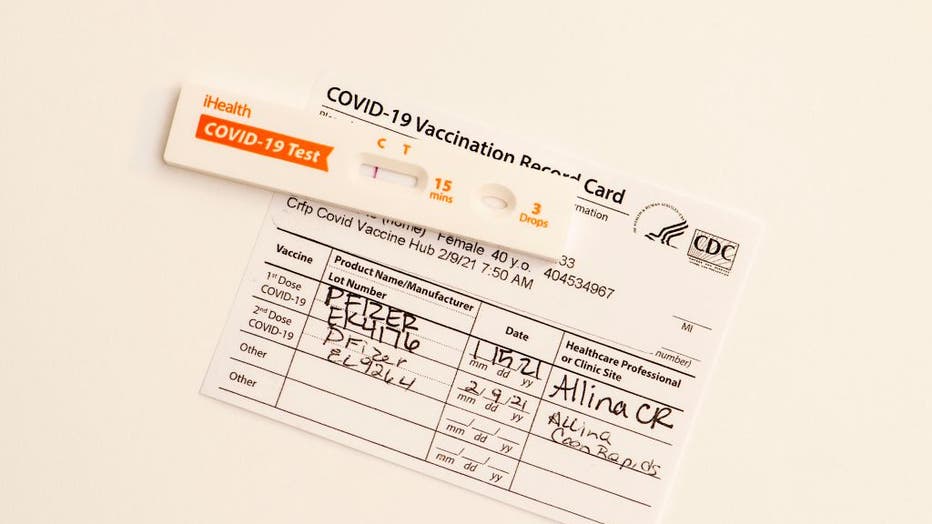George Mason University study shows DC's indoor vaccine mandate didn't work
Did DC's indoor vaccine mandate work?
It wasn't all that long ago that you'd need to show proof of vaccination if you wanted to walk into a restaurant in D.C. But did vaccine mandates actually work? FOX 5's Josh Rosenthal says some researchers aren't so sure.
WASHINGTON - In December 2021, amidst sky-high rates of COVID, officials in D.C. announced a mandate, requiring people 12 and older to show proof of vaccination when entering District businesses, like restaurants.
"The Omicron variant has hit us particularly hard," Mayor Muriel Bowser said at the time.
But more than a year later, new research from George Mason University’s Mercatus Center found that the city’s indoor vaccine mandate did not work.
"COVID cases were not affected by the mandate, COVID deaths were not affected by it, and people were not more likely to get vaccinated at all in the first place," explained Vitor Melo, a postdoctoral fellow at the Mercatus Center. He came to that conclusion by comparing COVID statistics in places like D.C. to the same statistics in cities that did not implement mandates.
"The idea behind the mandate is more people are gonna get vaccinated, therefore we’re gonna reduce the spread of COVID," Melo added. "That first step really didn’t happen."
Melo said one reason why is that if people wanted to go to a restaurant but didn’t want to get vaccinated, they could just hop on the Metro and go to, say, Arlington.

Covid-19 at home self test card with negative results on white background with vaccination card. (Photo by: Michael Siluk/UCG/Universal Images Group via Getty Images)
Most people who spoke to FOX 5 about the findings Wednesday said they weren’t surprised.
"A lot of stupid people don’t want to have vaccinations forced on them," said Donald Benedict.
Andrew Markert, who owns two D.C. restaurants – Beauchert’s Saloon and Fight Club – added that while they did have to turn away guests without vaccine cards occasionally, "hindsight is 20/20."
"Nobody knew what to do. Nobody knew what was right to do," Beauchert said Wednesday after looking over the new research. "So, we navigated it all the best we could, and I think the mandate was the right way to go at the time."
D.C. Health Department did not respond to multiple requests for comment.
To view the new research in its entirety, you can click here.

